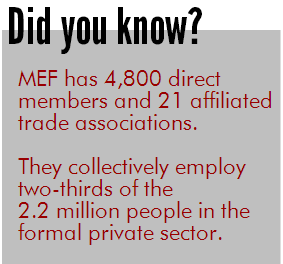Graduates of private universities or colleges are better, says Malaysian Employers Federation

Afterschool Team
June 26, 2014
"Private college graduates tend to be better," says Christopher Raj when meeting and hiring new job applicants.
A council member of the Malaysian Employers Federation (MEF), Christopher notices that this problem is not only prevalent among school leavers but also graduates of local universities.
"You ask them in English and they respond in Bahasa Malaysia."
This comes as no surprise.
In 2012, about 60 per cent of public university applicants scored low in the Malaysian University English Test (MUET).
In a research done to find out Malaysian polytechnic students’ reading habits, it appears that respondents prefer to surf the Internet during their leisure time (50.5%) which includes Facebooking. Only 8% of students prefer to read English literature in their spare time.
According to Christopher, out of the 10 job applicants in the hospitality sector, eight or nine could not speak English. Since immigration laws do not allow hotels to hire English-proficient personnel, major hotels would have to send their new employees for some intensive English-language courses.
Recently, MEF conducted a survey among its members and found out that 60 per cent identified low English proficiency as the main problem with young recruits.
Similarly, Jobstreet surveyed senior managers and companies last year and found out that 55% of respondents believe that poor command of the English language was the main culprit for unemployment among undergraduates.
Not only does English proficiency enhances one's chances of employment, it even helps improve one's salary. A research study confirmed that those with higher proficiency in the language could have an increase of 25 per cent in their salary. The study was carried out by Euromotor International in 2012.
-----
Written by Lyn Cacha





